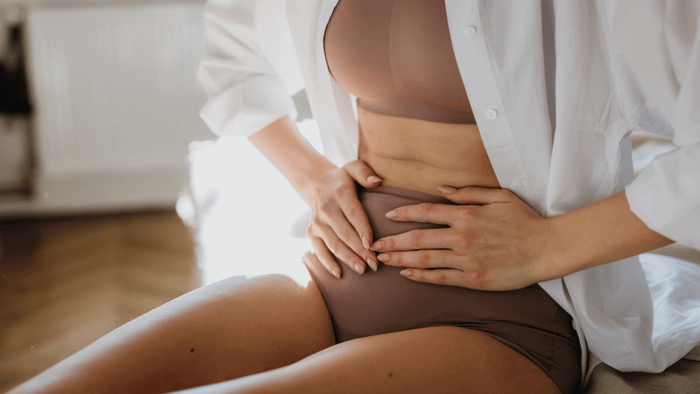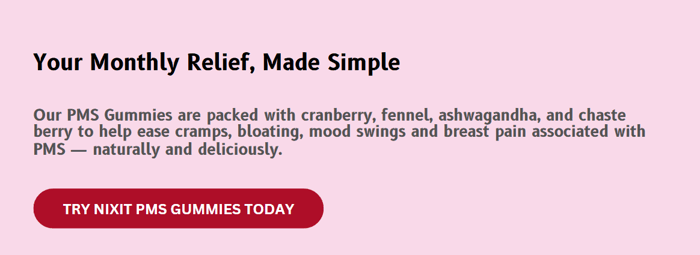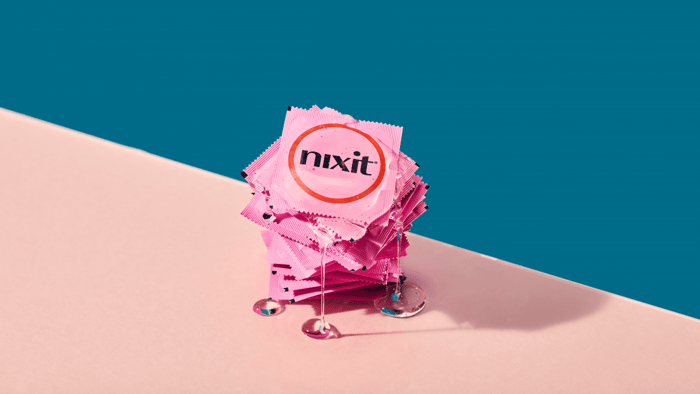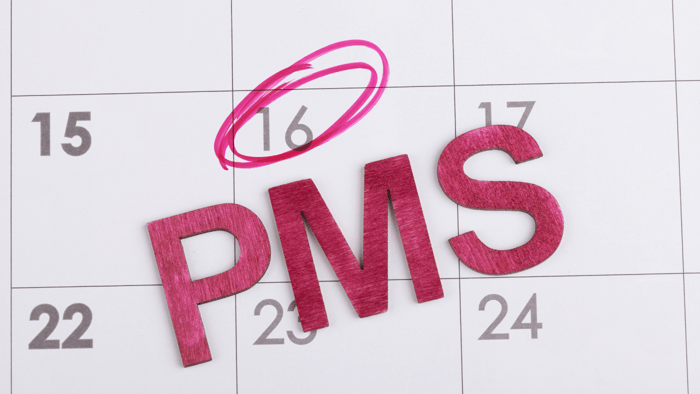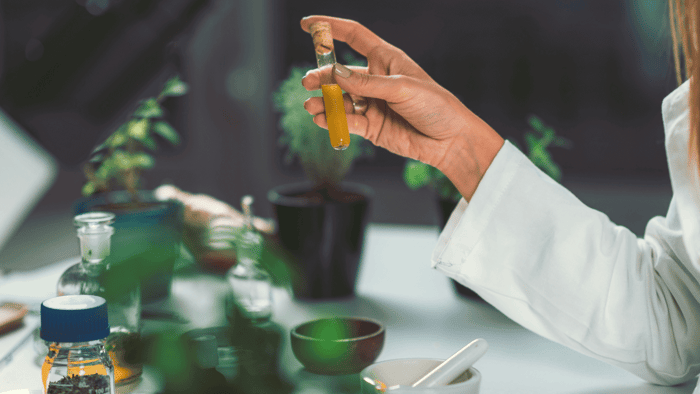PMS, or premenstrual syndrome, refers to the emotional and physical symptoms that show up before your period. Learn what PMS means, its common symptoms, what causes it, and how to manage it naturally.
Table of Contents
What is PMS? Understanding the Emotional and Physical Rollercoaster
PMS stands for premenstrual syndrome. It’s that delightful phase where your hormones throw a rager roughly 1-2 weeks before your period. The result? A swirling mix of emotions, cravings, bloating, fatigue, and the deep need to either nap or fight someone (or both).
It’s not all in your head. PMS is very real. And whether your symptoms are mildly annoying or full-on disruptive, you’re not alone.
Common PMS Symptoms: From Bloating to Mood Swings
PMS symptoms vary from person to person and cycle to cycle. You might feel one way in April and totally different in May. Here are some of the usual suspects:
Physical symptoms:
Bloating
Cramps
Breast tenderness
Fatigue
Headaches or migraines
Joint or muscle pain
Acne flare-ups
Digestive issues (yes, including constipation and nausea)
Emotional & behavioral symptoms:
Mood swings
Irritability or anger
Anxiety or depression
Sleep disturbances
Food cravings (hello, chocolate)
Trouble focusing
Crying over dog videos (again)
Why Is PMS Even a Thing? (Aka: What Causes PMS?)
Blame your hormones. Estrogen and progesterone fluctuate during the luteal phase (that window before your period), and those shifts affect your mood, energy, and physical comfort. But it doesn’t stop there:
Serotonin drops can lead to irritability and sadness
Low magnesium or B6 can make symptoms worse
Genetics can make PMS symptoms more intense
Lifestyle factors like poor sleep, high stress, and junky diets also play a role
Some folks even experience PMDD (Premenstrual Dysphoric Disorder), a more intense form of PMS that may require medical support.
How to Reduce PMS Symptoms Naturally
Let’s be clear: you don’t have to white-knuckle through PMS. Here’s what helps:
Smart nutrition:
Eat leafy greens for magnesium (goodbye cramps)
Choose omega-3-rich foods like salmon and chia seeds
Balance blood sugar with whole grains, not cupcakes
Snack on bananas and avocados for potassium and B vitamins
Want a deeper dive into PMS-friendly foods? Check out our What to Eat on Your Period Blog for more cycle-supportive options.
Supplements that can help:
Magnesium: great for bloating and mood
Vitamin B6: helps with irritability
Calcium: eases both mood and muscle symptoms
Omega-3s: fight inflammation
Adaptogens: like ashwagandha may reduce stress
Nixit PMS Gummies: packed with chaste berry and other natural ingredients to help your hormones chill
Lifestyle upgrades:
Light exercise like yoga or walking
Meditation or deep breathing to reduce stress
Prioritize sleep (even if your brain insists on late-night scrolling)
Cut back on caffeine and alcohol (sorry, but they really don’t help)
How to Control PMS Anger and Mood Swings
You’re not "overreacting." Hormonal mood swings and PMS rage are real. Here's what can help:
Journal your thoughts (rage-writing counts)
Move your body to release pent-up energy
Try vitamin B6 or magnesium for mood support
Use calming tools like essential oils, herbal teas, or deep breathing apps
Creative outlets can also be a lifesaver. Draw. Bake. Dance in your underwear. Just get it out.
Other Frequently Asked Questions
Is Nausea a Symptom of PMS? Yes. Some people get queasy thanks to hormone shifts, especially if they’re prone to migraines or sensitive to estrogen changes. Progesterone can also slow down digestion, which doesn’t help.
Can PMS Cause Constipation or Dizziness? Also yes. Hormonal changes mess with your gut and circulation. That sluggish, off-kilter feeling? It's not just you.
Can PMS Make You Tired? Absolutely. Between hormone dips, poor sleep, and craving-ridden blood sugar crashes, fatigue is basically the PMS mascot.
Can PMS Cause Anxiety? 100%. As serotonin drops, your brain chemistry gets a little wobbly. That can trigger anxiety, especially in people already prone to it.
What does PMS mean? PMS stands for Premenstrual Syndrome. It includes the physical and emotional symptoms that show up before your period.
What are PMS symptoms? They range from bloating and cramps to anxiety, mood swings, cravings, and fatigue.
How long does PMS last? Usually 3-7 days before your period. For some, it starts earlier and lasts longer.
Does PMS get worse with age? Yes, especially during your 30s and 40s when hormones fluctuate more erratically.
Can diet affect PMS? Absolutely. Nutrient-dense foods and stable blood sugar can help ease symptoms.
Better Care Starts Here
Need a little help navigating your hormonal rollercoaster? PMS Gummies were made for moments like these.
nixit PMS

$35.00
Our PMS gummies are designed to ease common PMS symptoms like bloating, breast pain, and cramps. Made with herbal supplements including chaste berry, fennel, and ashwagandha, they help support hormonal balance, immune system health, and stable energy levels. Our vegan… read more

